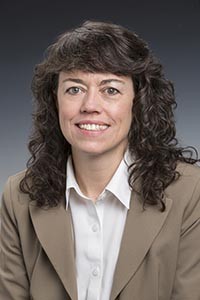
In December, the council submitted its application to the U.S. Coast Guard for recertification under the Oil Pollution Act of 1990, referred to as “OPA90.”
The Act requires the council to reapply yearly for the Coast Guard’s approval as the official citizens’ advisory group to the oil industry in Prince William Sound. Guidelines established in 2002 streamlined the recertification process for two out of three years, with every third year requiring stricter procedures. That process—known as comprehensive recertification—was used this year.
The application and supporting documents describe how the council has met its responsibilities under OPA90 over the past few years. We are evaluated on whether we include a broad representation of interests in our membership, maintain open communication with industry and government on a variety of issues, coordinate on scientific work, develop and carry out effective monitoring programs, work to prevent and plan for oil spills, and more.
As staff worked together to compile the information, we reflected not only on our achievements, but also the importance of our relationships with our communities, partners, industry, and regulators. The number of diverse groups we coordinate with—from board-represented entities to Alyeska, divisions of state and federal government, research consultants, and the public at large —can be seen as daunting to those not familiar with our organization. But it is only through all of these diverse groups working together that we can accomplish our goal: maintaining environmentally safe operation of the Alyeska Pipeline marine terminal in Valdez, and ultimately preventing oil spills in Prince William Sound.
While the role of the council under OPA90 is to advise and monitor, we also promote and maintain partnerships through communication and coordination with industry and regulators. Our relationships with different sectors can be complicated, but the council strives to maintain positive and productive dealings.
It is important that we look for opportunities to celebrate successes towards our shared goals, such as last spring’s tour of Alyeska/SERVS fishing vessel oil spill response training. Residents of Seward were invited aboard a Kenai Fjords Tours vessel, chartered by the council, to learn how community members help protect local waters from oil spills. Two Alyeska staff members helped narrate the tour, along with council staff. This project was positive for everyone: the community of Seward, Alyeska/ SERVS, and the council. The council is planning these tours annually, with the next happening in Cordova this May.
The council’s role is to be a voice for the communities and groups we represent. We are fortunate to have dedicated, hardworking board and committee volunteers that provide direction and invaluable local and technical input that guides and assists us in our efforts, without which our work could not be done. We thank all of those who have given so many hours to support our mission, both past and present, as well as our public partners and industry and regulatory agency colleagues. Together we continue to advocate for the highest level of standards and care to protect Prince William Sound and its downstream communities from future oil spills.
The Coast Guard publishes our recertification application for a public comment period. We encourage all of our partners, member entities, interest groups, and anyone who has a stake in making sure that local citizens are involved in decisions that impact the safe transportation of oil from the Valdez Marine Terminal and associated tankers to submit a letter of support.
As The Observer went to press, the public comment period had not yet begun, although it was expected to at any time.
Update 1/27/2017:
The public comment period began in late January. Information on how to submit a letter of support is available here: Council recertification application available for public review